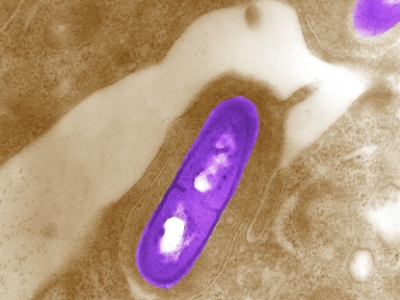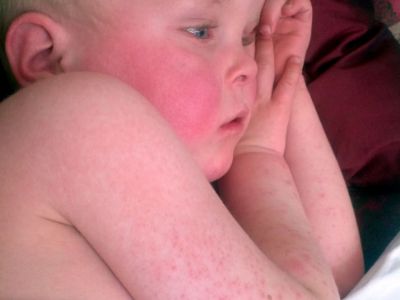Bacterial Meningitis

Bacterial meningitis can be life-threatening. This infection may cause the tissues around the brain to swell. As a result, it interferes with blood flow and can result in paralysis or even stroke.
Children between the ages of 1 month and 2 years are the most susceptible to bacterial meningitis. Adults with certain risk factors are also susceptible. You are also at higher risk if you have a weakened immune system, have sickle cell disease, or taking corticosteroids because of kidney failure. Additionally, if you have had spinal or brain surgery or have had a widespread blood infection you are also at a higher risk for bacterial meningitis.
What Causes Bacterial Meningitis?

Bacteria that cause bacterial meningitis are common in the environment and can be found in the nose and respiratory system without causing any harm. Several types of bacteria can cause meningitis. Leading causes may include:
- Escherichia coli
- Listeria monocytogenes
- Haemophilus influenza
- Neisseria meningitides
- Group B Streptococcus
- Streptococcus pneumonia
Vaccines are available that target many of these bacteria. For this reason, it’s important to know what’s causing meningitis. Even though all types affect the same area of the body, they can have different outcomes and need different treatments.
What Are The Symptoms Of Bacterial Meningitis?
The most common symptoms of Bacterial Meningitis are:

- Sensitivity to light
- A rash on the skin
- Bruising easily all over the body
- Feeling confused or sleepy
- High fever
- Headaches
- Painful, stiff neck with limited range of motion
These symptoms may occur in children:
- Lack of appetite
- Swelling of the head
- Frequent crying
- Vomiting from a high fever
- Irritability
- Seizures
The symptoms typically begin to appear quickly, within a few hours or up to a few days. You should go to an emergency room if you think you or your child have meningitis.
How Is Bacterial Meningitis Diagnosed?
You should seek immediate medical attention if you suspect meningitis.
A physical exam will be conducted by your doctor. A doctor will look for a purple or red rash on the skin. Your doctor will examine your hip and knee flexion and check your neck for stiffness. The doctor will have to determine whether the cause is bacterial, viral, or fungal, so a spinal tap will be ordered. The blood and urine from your body, as well as mucous from your nose and throat, may also be tested.
What Are The Treatment And Medication For Bacterial Meningitis?
Antibiotics are used to treat bacterial meningitis. Even before all test results are in, a general intravenous antibiotic with corticosteroids to bring down inflammation may be prescribed. Your doctor may decide to change your antibiotics when the specific bacteria are identified. Along with antibiotics, it will be important to replace fluids lost from vomiting, diarrhea, and sweating.
Medications that can be used for the treatment of bacterial meningitis:



